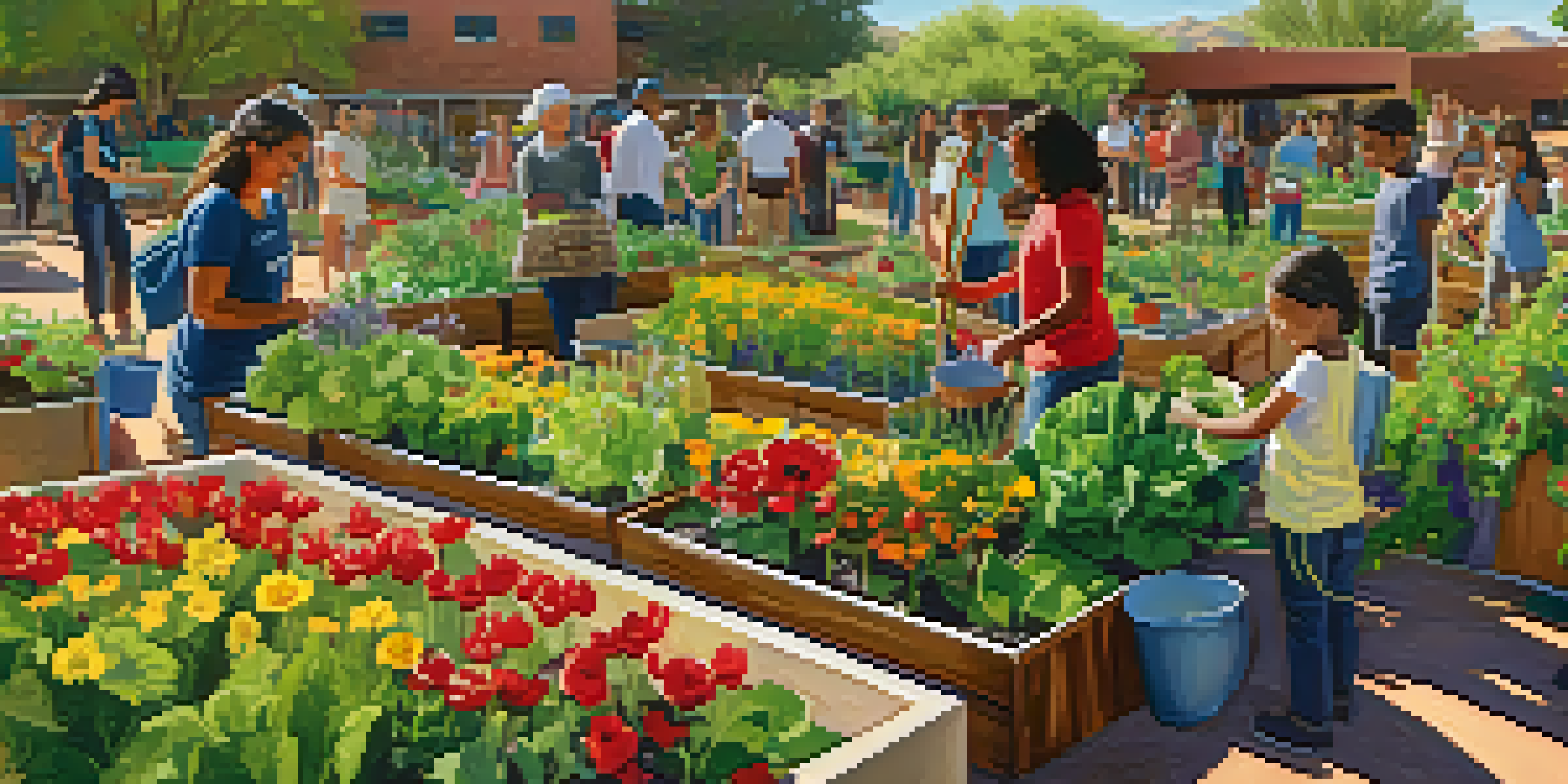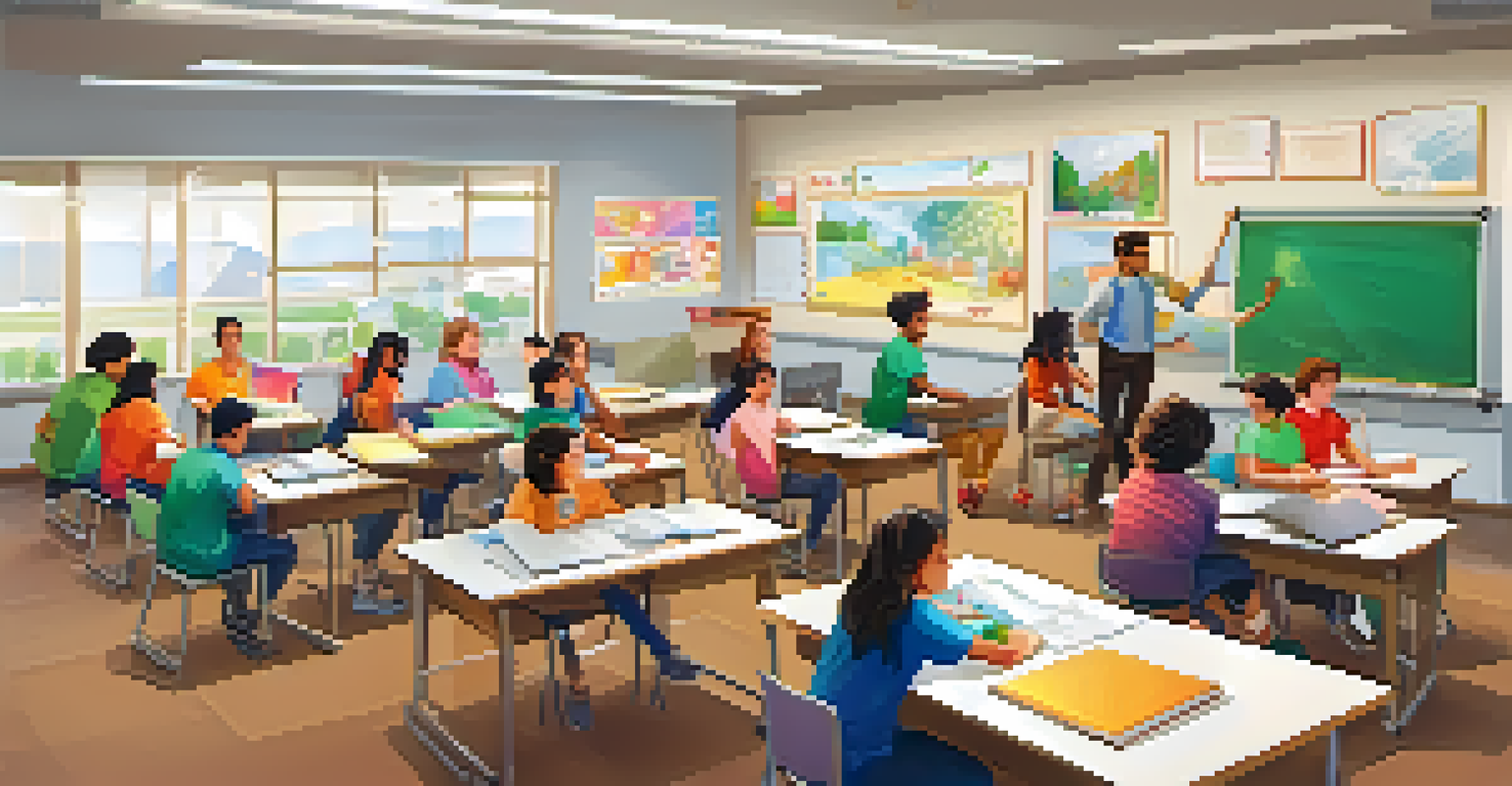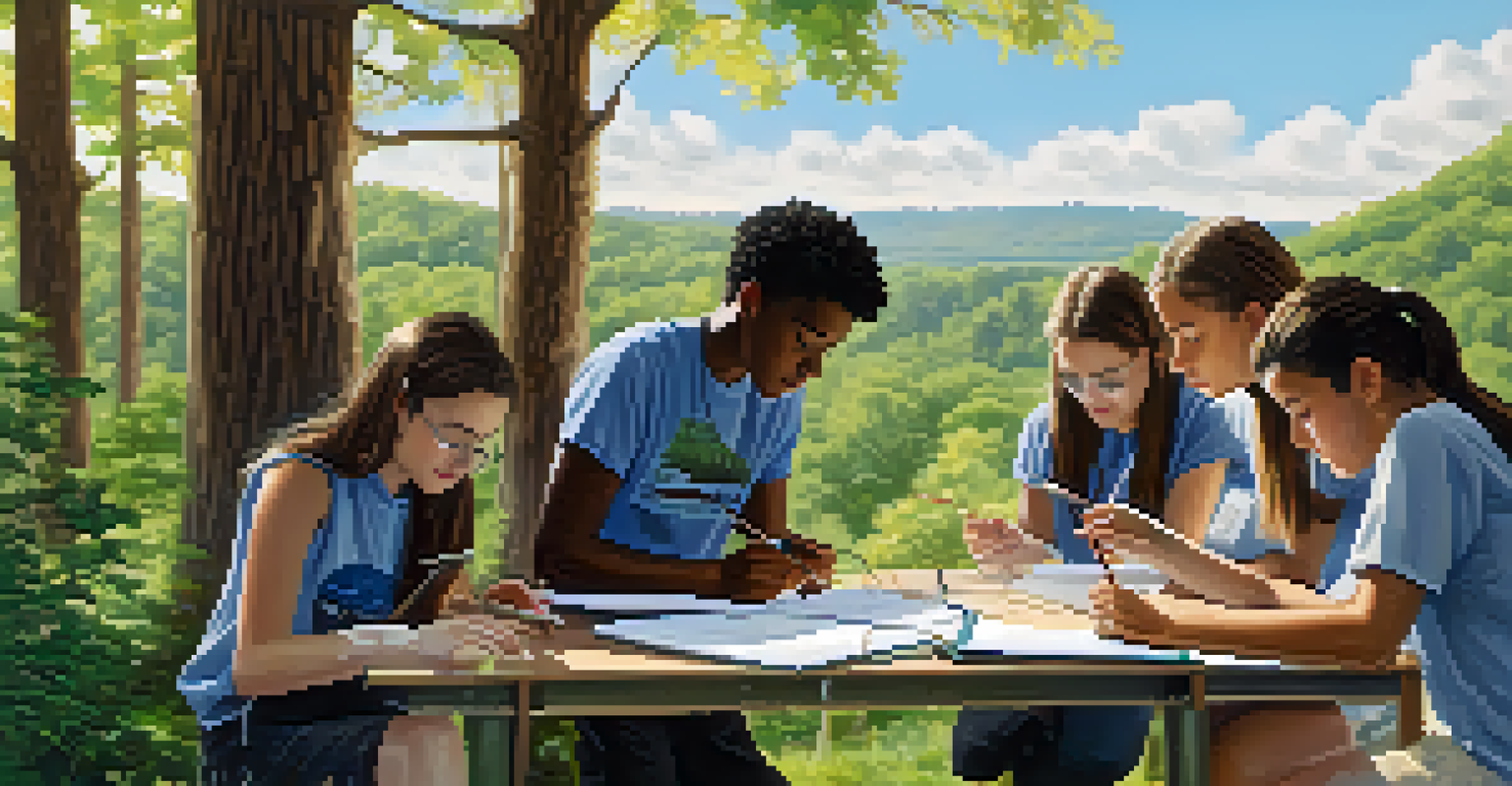Innovative Teaching Methods at Tucson's Educational Institutions

Project-Based Learning: Real-World Applications in Classrooms
Project-based learning (PBL) has taken Tucson's classrooms by storm, allowing students to engage with real-world problems. Instead of traditional lectures, educators encourage students to collaborate on projects that require critical thinking and creativity. For example, students might work on a community garden project, learning about biology, sustainability, and teamwork.
Tell me and I forget, teach me and I remember, involve me and I learn.
This hands-on approach not only makes learning more enjoyable but also fosters a sense of ownership among students. They see how their work can impact their community, making education feel relevant and significant. As they navigate challenges during projects, they develop essential life skills, such as problem-solving and communication.
Schools like Tucson High Magnet School have successfully implemented PBL, showcasing student projects at community events. These initiatives demonstrate that when students are invested in their learning, they are more likely to retain information and apply it in future scenarios.
Flipped Classrooms: Learning at Home, Engaging at School
Flipped classrooms are gaining traction in Tucson, shifting the traditional teaching model on its head. In this setup, students first learn new concepts at home through videos or readings, and then engage in interactive activities in class. This method allows teachers to dedicate class time to discussions, group work, and hands-on projects, enhancing student engagement.

One benefit of this approach is that it caters to diverse learning paces. Students can rewind and revisit lessons at their convenience, ensuring they grasp the material before class. This flexibility also allows teachers to focus on addressing individual student needs during class time.
Innovative Learning Methods Thriving
Tucson schools are embracing innovative teaching methods like project-based learning and flipped classrooms to enhance student engagement and understanding.
Schools like Sabino High School have embraced this innovative method, reporting increased student participation and deeper understanding of concepts. As students take charge of their learning, they often develop a greater sense of responsibility and motivation.
Integrating Technology: Enhancing Learning Experiences
Tucson's educational institutions are increasingly integrating technology into their teaching methods, creating a more dynamic learning environment. Tools such as tablets, interactive whiteboards, and educational apps help engage students and facilitate collaboration. For instance, teachers can use platforms like Google Classroom to streamline assignments and foster communication.
Education is not the filling of a pail, but the lighting of a fire.
With technology, students can access a wealth of resources beyond their textbooks. They can explore virtual field trips, participate in online discussions with peers from different regions, and access real-time data for projects. This not only enriches their learning experience but also prepares them for a tech-driven world.
Schools like Rincon High School are at the forefront of this trend, equipping classrooms with state-of-the-art technology. By embracing these tools, Tucson educators are helping students develop digital literacy skills essential for their future.
Social-Emotional Learning: Prioritizing Mental Well-Being
Innovative teaching methods in Tucson also focus on social-emotional learning (SEL), recognizing the importance of mental well-being in education. Schools are incorporating lessons that teach students to manage their emotions, build positive relationships, and make responsible decisions. For example, daily check-ins and mindfulness activities have become common practices.
By addressing emotional health, educators create a supportive environment where students feel safe to express themselves. This not only enhances their academic performance but also prepares them to navigate life's challenges. When students learn to manage stress and communicate effectively, they become more resilient individuals.
Focus on Social-Emotional Learning
Educators in Tucson are prioritizing social-emotional learning to support students' mental well-being and foster resilience.
Institutions like the Tucson International Academy have integrated SEL into their curricula, showing promising results in student behavior and academic success. The focus on mental well-being is shaping a new generation of empathetic and self-aware learners.
Culturally Responsive Teaching: Embracing Diversity
Culturally responsive teaching is another innovative method gaining traction in Tucson's schools. This approach acknowledges and values students' diverse backgrounds and experiences, making learning more relatable and inclusive. For instance, teachers might incorporate multicultural literature and history into their lessons, celebrating the rich tapestry of cultures represented in the classroom.
By fostering an environment of respect and understanding, educators can help students build connections with their peers and the curriculum. This not only enhances engagement but also instills a sense of pride in their identities. When students see themselves reflected in their studies, they are more likely to participate actively.
Schools like the University High School focus on culturally responsive strategies, which have been shown to improve student engagement and academic outcomes. Embracing diversity is not just about representation; it's about creating a learning community where every student feels valued.
Collaborative Learning: Building Teamwork Skills
Collaborative learning is making waves in Tucson's educational institutions, emphasizing teamwork and peer interaction. In this approach, students work together on tasks, projects, and discussions, learning from one another's strengths and perspectives. This method not only enhances academic understanding but also builds essential social skills.
For example, in a science class, students might form small groups to conduct experiments, fostering communication and cooperation. They learn to navigate group dynamics, resolve conflicts, and celebrate each other's successes. These experiences are invaluable, as teamwork is a crucial skill in both academic and professional settings.
Technology Enhances Education
The integration of technology in Tucson classrooms is transforming learning experiences, providing students with valuable digital literacy skills.
Schools like Flowing Wells High School have integrated collaborative learning into their curricula, resulting in improved student engagement and camaraderie. As students learn to work together, they develop a sense of community that extends beyond the classroom.
Experiential Learning: Learning Through Experience
Experiential learning is another innovative teaching method that's gaining popularity in Tucson. This approach encourages students to learn through hands-on experiences, allowing them to apply theoretical knowledge in real-life situations. For instance, students might participate in internships, field trips, or service projects, making learning more tangible and impactful.
By engaging in experiential learning, students develop critical thinking and problem-solving skills. They gain insights into their interests and career paths, helping them make informed decisions about their futures. This method also fosters a sense of curiosity and a love for learning, as students discover the relevance of their education.

Schools like Catalina Foothills High School have successfully implemented experiential learning programs, resulting in heightened student motivation and engagement. This hands-on approach empowers students to take charge of their education and explore the world around them.